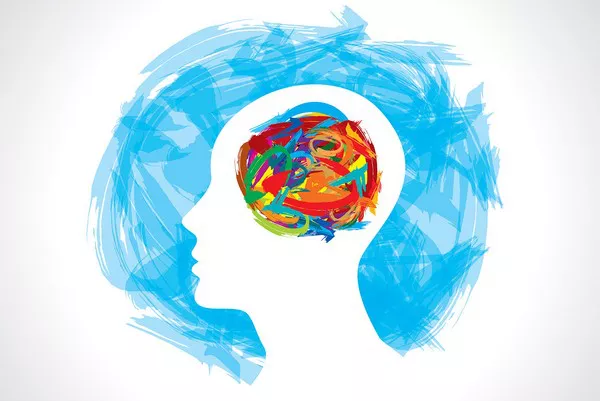Mental disorders can significantly impact an individual’s ability to function in daily life, affecting their work, relationships, and overall well-being. In some cases, these challenges may warrant consideration for disability benefits. This article aims to explore the landscape of mental disorders that qualify for disability, the criteria involved, and the process individuals must navigate to secure the support they need.
The Social Security Administration (SSA) and Mental Disorders
The Social Security Administration (SSA) is the government agency responsible for administering disability benefits in the United States. When it comes to mental disorders, the SSA has a specific set of criteria outlined in the “Blue Book,” a manual used by disability examiners to evaluate claims.
Qualifying Mental Disorders
Anxiety Disorders: Conditions such as generalized anxiety disorder (GAD), panic disorder, social anxiety disorder, and specific phobias may qualify for disability benefits if they significantly impair an individual’s ability to work and perform daily activities.
Mood Disorders: Major depressive disorder, bipolar disorder, and persistent depressive disorder fall under this category. To qualify, individuals must demonstrate that their symptoms substantially limit their ability to work.
Schizophrenia and Other Psychotic Disorders: Schizophrenia, schizoaffective disorder, and other psychotic disorders may qualify for disability if individuals experience persistent symptoms that hinder their ability to maintain employment.
Post-Traumatic Stress Disorder (PTSD): Individuals with PTSD may be eligible for disability benefits if their symptoms, such as flashbacks, nightmares, and severe anxiety, interfere with their capacity to work and engage in routine activities.
See Also: PTSD: Symptoms, Causes & Treatment
Personality Disorders: Certain personality disorders, such as borderline personality disorder and obsessive-compulsive disorder (OCD), may qualify for disability if they significantly impair an individual’s ability to function in a work environment.
See Also: 10 Common Types of Obsessive-Compulsive Disorder (OCD)
Neurodevelopmental Disorders: Conditions like autism spectrum disorder and attention-deficit/hyperactivity disorder (ADHD) may qualify for disability if they substantially impact an individual’s daily life and ability to work.
The Disability Evaluation Process
Medical Evidence: The SSA requires comprehensive medical evidence to support a disability claim. This includes medical records, treatment history, and assessments from mental health professionals detailing the severity and impact of the mental disorder.
Functional Limitations: Individuals must demonstrate how their mental disorder affects their ability to perform work-related activities. This may include difficulties with concentration, memory, social interactions, and the ability to adapt to changes in the workplace.
Duration of Impairment: To qualify for disability benefits, the mental disorder must be expected to last for at least 12 continuous months or result in death.
Challenges in the Application Process
Subjectivity of Mental Health: Unlike many physical conditions, mental disorders can be challenging to quantify objectively. The subjective nature of mental health symptoms may lead to skepticism during the evaluation process.
Stigma and Misunderstanding: There is still a significant societal stigma surrounding mental health, which can result in misconceptions and biases during the disability application process. This can make it more challenging for individuals with mental disorders to receive the support they need.
Co-Occurring Conditions: Many individuals with mental disorders also experience physical health issues or additional mental health conditions. Navigating the complexities of multiple conditions can add a layer of complexity to the disability application process.
Seeking Professional Assistance
Given the intricacies of the disability application process for mental disorders, individuals are encouraged to seek professional assistance. Mental health professionals, disability attorneys, and advocates can provide invaluable support in gathering necessary evidence, articulating functional limitations, and navigating the bureaucratic requirements.
Appeals and Reconsideration
It is not uncommon for initial disability claims to be denied. In such cases, individuals have the right to appeal the decision. The appeals process involves presenting additional evidence, attending hearings, and, if necessary, pursuing legal representation to strengthen the case.
The Role of Supportive Documentation
Supportive documentation from mental health professionals is crucial in establishing the severity of a mental disorder. This may include psychiatric evaluations, treatment plans, and letters from therapists or counselors detailing the impact of the condition on the individual’s daily life and ability to work.
Evolving Perspectives on Mental Health
As societal attitudes toward mental health continue to evolve, there is a growing recognition of the debilitating impact that mental disorders can have on an individual’s life. Advocacy efforts are underway to reduce stigma, improve understanding, and ensure that individuals with mental disorders receive fair and compassionate consideration in the disability evaluation process.
Conclusion
Navigating the process of qualifying for disability benefits due to mental disorders involves understanding the specific criteria set forth by the Social Security Administration, addressing the challenges associated with mental health assessments, and seeking professional assistance when needed. It is essential for individuals facing mental health challenges to be aware of their rights, gather comprehensive evidence, and persist in the pursuit of the support they require. As society continues to recognize the significance of mental health, the hope is that the disability application process will become more inclusive and empathetic, ensuring that those with mental disorders receive the assistance they need to lead fulfilling lives.

